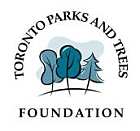
Pages in this Folder:

Related Folders:
See also Department Site Map
This website was developed in 2001 thanks to a grant from the Toronto Parks and Trees Foundation.

Notice: This web site is an information post and a forum for the community that uses the park, and to some degree for the surrounding neighbourhood. The editor of the web site reserves the right to post parts or all of any letters sent to the web site. If you do not want your letter posted, please let us know when you e-mail us, and we won't post it.
Comments?
For the basics, see
- Website & Privacy Policies
- How To Get Involved
- The Role of the Park
Search options:
Department Site Map
Custodians:
posted October 28, 2006
BIO-TOILETS AND COMMUNITY CONTROL
BIO-TOILETS
Park friend and shinny hockey player Veronica Pochmursky, who works at the Ontario Ministry of the Environment, sent in an article about “bio-toilets” by Elizabeth Rand-Watkinson, October 27 in the Globe and Mail. This writer describes a Japanese “bio-toilet” soon to be manufactured in Canada. It’s used in very cold climates in Japan and Russia, and in very busy places, e.g. Japan’s biggest zoo, where there are over 2 million visitors a year. The waterless, odourless toilet, with its little rotating augur and fan, sounds very similar to the one being installed at Dufferin Grove Park. But the manufacturer is careful not to call it a composter. He calls it a biodegrader.
The bio-toilet described in the Globe article, like the one that Georgie Donais got donated for the park, has very low maintenance requirements and some remarkable advantages. From the Globe: “Annual maintenance involves the removal and replacement of a third of the supply of sawdust in the unit three times a year. As an added green bonus, the spent sawdust has been effectively pasteurized and contains enough nutrients that it can be safely spread over your lawn as a natural fertilizer. So, you could say your waste produces literally no waste, because everything that comes out of the biotoilet can be put to good use.”
COMMUNITY CONTROL
The Globe writer anticipates a time when these toilets will gain broad acceptance, because – she says – they are so much better for the environment. As became evident this summer, though, acceptance is not quite here yet. Several close park neighbours have tried hard to stop the installation of the toilet in the park. For some time now, they have been calling for more formal community input on all decisions made about the park. Last November, the City called a public meeting at St.Mary's High School to find out whether other voices were calling for a more formal community advisory structure too. Every household in the area got an invitation, and the cafeteria was almost full. But at the end of the meeting it was clear that there was minimal enthusiasm for a formal community council, and no further steps were taken.
That was before the bio-toilet and then the arrival of Foodshare and their youth teaching garden in the park. To stop these initiatives, the question of "community control" was back on the table. It has even become an election issue: Ward 18 candidate Simon Wookey says he will work to create "Park Trusts" to "take the authority from the politicians and put it into the hands of the community." Would that mean -- perhaps -- that the community would have the authority not only to vote on a new kind of toilet, but also on replacing grass with a new garden bed, paving of the central path to make the park wheelchair-accessible, permission to hold a cultural event -- every detail?
If such a system is installed, here's a puzzle: who will be eligible to be a part of any community parks authority? If membership is by election, will everyone in the ward get to vote, or only the people who live within a block of the park? Will frequent park users be allowed to vote, although they live six blocks away, or even in an adjacent ward? (Dufferin Grove Park is only two blocks from a ward boundary.) If not, will that mean that parks are possessions of their immediate neighbourhood, not an amenity belonging to all Toronto residents? If yes, how frequently will a person have to use the park to be allowed to vote on the park authority? How will they prove frequent use?
This candidate’s idea may need a little more thought.


 Printer friendly version
Printer friendly version